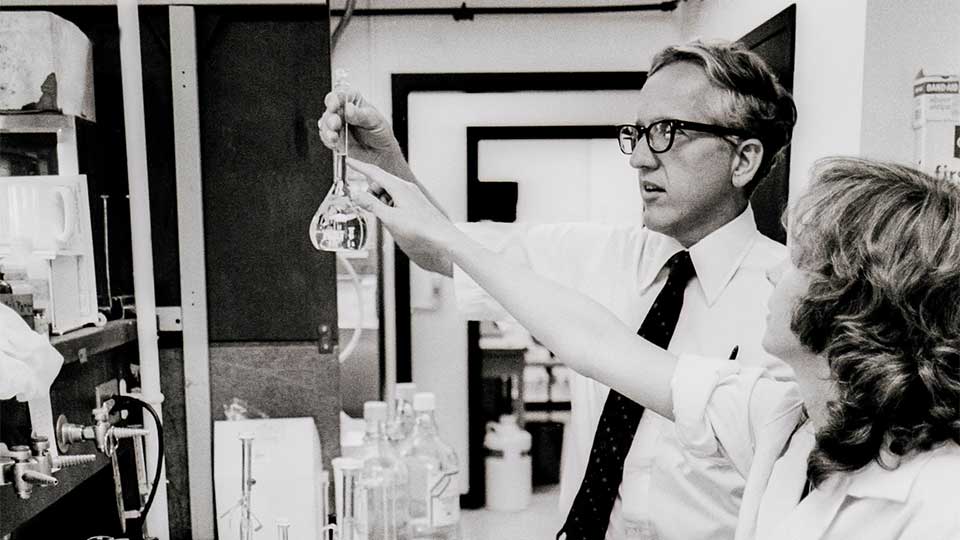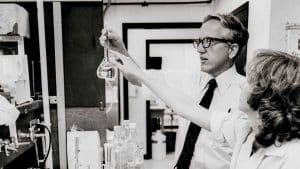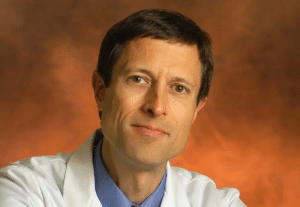The Making of the Scientist Behind The China Study
Introduction
Dr. T. Colin Campbell, raised on a dairy farm, embarked on a scientific quest to prove animal proteins were essential for health. Little did he know, his research would lead him down a revolutionary path, challenging conventional wisdom and culminating in The China Study, a groundbreaking research that would ignite the whole food, plant-based (WFPB) movement.
But how did a childhood surrounded by dairy products actually lead to a plant- based revolution? Delve into Dr. Campbell’s fascinating journey and the surprising findings of The China Study that continue to reshape our understanding of nutrition.
Early Inspirations
In rural Virginia, a young Colin Campbell helped milk cows and tend the fields on his family farm, a world away from the halls of academia. His father, a man with limited formal schooling, instilled a deep respect for education in his children.
Determined to give his son opportunities he never had, he sent Colin on a 102-mile daily journey for 5 years to a prestigious high school in Washington, D.C. His father’s resolve and Colin’s resilience built in him a work ethic that would define his career.
Dr. Campbell’s academic journey took an unexpected turn when he steered away from veterinary studies and towards a Ph.D. in nutritional biochemistry at Cornell University. His initial research reinforced the prevailing wisdom of the era – that animal proteins were beneficial and essential to health.
However, his deeply held beliefs began to crumble during a project aimed at addressing childhood malnutrition in the Philippines. There, he observed a disturbing correlation between high animal protein intake and liver cancer in children.

A Disturbing Discovery
This unsettling finding coincided with similar research from India, which suggested that higher protein levels could actually increase cancer risk, contrary to prevailing views.
These revelations propelled Dr. Campbell into a new direction of research, examining the effects of protein and diet on cancer development. In the coming years, his investigations would challenge the foundations of nutritional science and policy.
The China Project: A Global Undertaking
Driven by these early findings, Dr. Campbell co-led an extensive study known as the China Project, one of the largest human nutrition studies ever undertaken.
Its conclusions were striking: diets rich in animal-based foods increased disease risk, while plant-based diets offered protection. These insights formed the core of his influential book, “The China Study,” which has inspired millions to rethink their dietary habits.
Contributions and Continuing Impact
Beyond the publication, Dr. Campbell’s work has spurred significant changes in nutritional guidelines and public health policies.
He has taught at Virginia Tech, conducted impactful research funded by national grants, and founded the T. Colin Campbell Center for Nutrition Studies. His educational programs continue to empower people with the knowledge to make healthier dietary choices.
Conclusion: An Extraordinary Life
He is an inspiration, reminding us that even the most ordinary beginnings can lead to extraordinary discoveries, and that with dedication and a healthy dose of curiosity, we can all make a difference in the world.

Left: A present-day portrait of Dr. T. Colin Campbell, the revered nutrition scientist.
Right: Dr. Campbell in his early research days, amidst the greenery, where his groundbreaking work on plant-based
diets took root.
Further Reading
- Read this excerpt from Dr. Campbell’s book “Whole: Rethinking the Science of
Nutrition.” - Interested in exploring the WFPB diet? Check out this beginner’s guide to whole food plant-based nutrition.
- Want to feel inspired? Read these success stories of real people who transformed their lives with the WFPB diet.
Together! Lets show the world the power of a plant-based lifestyle
Join The Community!
Subscribe now to receive latest articles and exciting updates directly to your inbox.
Stay ahead with insightful content that matters to you.





